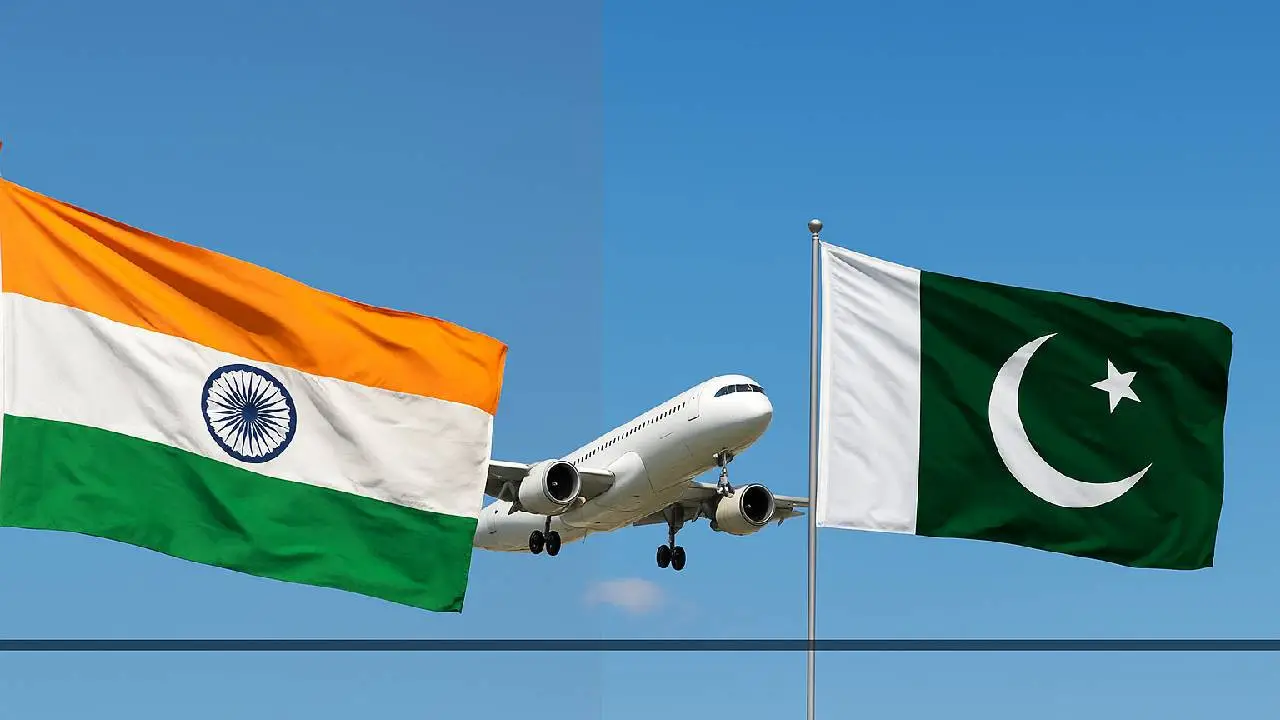
India Extends Ban On Pakistani (Credit AI)
International News: India Extends Airspace Closure Decision India has once again extended the closure of its airspace for Pakistani aircraft until October 24. The order clearly states that neither military planes nor civilian planes from Pakistan will be allowed to cross into Indian skies. This decision has come after a deadly terror attack in Pahalgam. The Indian government issued a fresh Notice to Airmen to confirm this extension. The situation has created a lot of concern among travelers and airlines. Both governments are firm in their stands. The restrictions have now become a key point in bilateral relations.
The main reason behind India’s tough decision is the terrorist attack that killed 26 innocent people in Pahalgam on April 22. This brutal attack shook the whole nation and forced India to take strong measures. By closing its airspace, India wanted to send a clear message to Pakistan.
The authorities believe that the move was needed for security and to prevent future risks. India has blamed Pakistan-backed groups for the strike. Security experts have called the move defensive. The airspace closure is seen as an act of protection.
Soon after India’s move, Pakistan also announced closure of its airspace for Indian aircraft. This means planes from both sides are banned from crossing into each other’s skies. Pakistan declared that the restrictions will remain until October 24, just like India. The stand-off has created difficulties for airlines that used this route. Flight timings have increased and costs have gone higher. Travelers are directly affected due to these steps. The closure has turned into a symbol of the larger conflict. It shows how tensions still dominate relations.
Airlines that once used Indian and Pakistani routes are now facing serious problems. The closure means longer flights, higher fuel costs, and delays for passengers. Many airlines have already started changing their schedules. Air cargo services are also suffering heavy losses. For the common traveler, the effect is seen in ticket prices. International airlines are choosing longer routes that are costly. This has increased pressure on both Indian and Pakistani aviation. The losses are running into millions of dollars. Experts believe the issue may continue if tensions rise.
The ban is not only about civilian flights but also affects military planning. Both countries are using this closure to test each other’s patience. The Indian military believes that the closure keeps the skies safe from any sudden intrusion. Pakistani forces are also alert on their side of the border. This step has raised the security level on both sides. It shows that defense concerns are now high priority. The ban has turned into a political and security statement. This shows how airspace can be used as a tool of pressure.
International observers are keeping a close watch on the situation. The airspace ban has once again shown how India and Pakistan relations are fragile. Many countries have urged both sides to start dialogue. However, the political climate is not allowing talks at present. The United Nations has expressed concern over rising tensions. Diplomatic experts say the closure is a warning sign. It is likely that tensions may rise further if terror incidents continue. The situation has global attention because of its impact on international flights. World powers are monitoring every step taken by both nations.
The future of airspace opening depends on security conditions in Kashmir. If more terror attacks happen, India will continue to extend the ban. Pakistan’s reaction will remain the same in response. This cycle has already been seen before and may continue. Airlines are waiting for a positive change but there is no sign yet. Passengers are the worst sufferers in this ongoing standoff. Aviation experts say the costs will keep rising as long as the ban remains. For now, the skies between India and Pakistan remain closed and tense.





Copyright © 2026 Top Indian News
